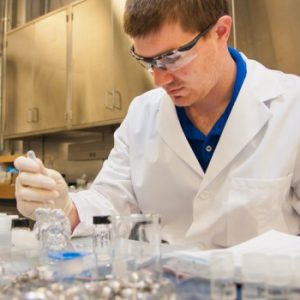Gambling might soon be used to predict the results of scientific experiments, as a group of psychologists found that betting on the outcomes of the experiments of their colleagues led to some very accurate predictions. This type of gambling setup is referred to as a prediction market, and it could very well be a major part of the scientific community in the future.
Current methods of measuring scientific results are often very inefficient. Estimates show that nearly half of all results and findings that are published in scientific journals are false positives. In order words, about half of all primary scientific findings turn out to be a fluke of the experiment.
This requires that experiments be replicated in different labs to ensure their accuracy. The problem with this is that not many scientists want to spend their valuable time replicating the work of others. However, the idea prediction markets could solve this issue.
Since prediction markets rely on the “wisdom of the crowd”, they can be extremely accurate. The idea is that even if some people are totally off the mark, the average or median predictions are likely to be pretty decent guesses. And when people put money on the matter, there is more pressure to get things right, leading to stronger predictions.
A test of prediction markets was conducted at the Stockholm School of Economics in Sweden. Behavioral economist Anna Dreber led the study, which replicated studies from top journals of psychology. Dreber used her own grant money to allow her colleagues to place bets on the results of the experiments. Those who correctly predicted the outcomes of the experiments received money. In the end, the scientists predicted that only about half of the experiments would be replicated successfully.
However, the scientists were slightly too optimistic, as only 39% of the experiments were able to be replicated successfully. Still, the prediction market was more accurate than the individual survey. As individuals, only 58% of the guesses were correct, but in the prediction market gambling approach, 71% of the predictions were accurate.
Many scientists participating in the study looked for value. They did not have to put as much money down to wager on an experiment that most believed would fail. The scientists instinctively chose to wager on experiments where they thought the value was the best. And some scientists made some pretty good cash, nearly doubling their money.
However, some scientists question the usage of prediction markets. Although they might work well in psychological studies, these markets might not be as accurate in fields like disease genomics where outcomes are more unpredictable. The markets are also limited by the fact that the experiment must be conducted so that it can be determined if the market was correct or not. Some say it’s useless to have the market when the experiment will be tested regardless.
Nevertheless, it’s a creative way to test the outcomes of experiments for accuracy. While they certainly won’t be used in every scientific study, prediction markets could have some useful applications in the future.
Stay Connected